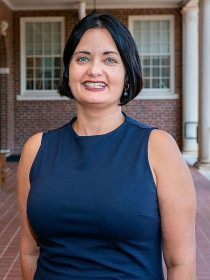
Farida Jalalzai
Connect with Farida
About Farida
Jalalzai's research analyzes the representation and behavior of women and minorities in politics and the role of gender in the political arena. Her work focuses on women national leaders.
Contributions
Why the United States Needs a Woman in the Presidency
In the News
Publications
Assesses how Hillary Clinton’s 2016 presidential loss conforms to established findings within the gender and politics literature about the difficulties women face in running for presidential office. In many ways, Clinton’s loss was predictable, though at times she defied the conventional wisdom. The presidential glass ceiling remains fully intact in the United States now and perhaps the foreseeable future.
Interrogates women's political empowerment', considering its definition, measurement, and application.
While providing valuable insight into the big picture of women in presidential politics throughout Latin America over the last several decades, this book more closely analyzes four women presidents gaining office since 2006: Michelle Bachelet (Chile) Cristina Fernández (Argentina) Laura Chinchilla (Costa Rica) and Dilma Rousseff (Brazil). It assesses the paths and impacts of Latin American women presidents and scrutinizes the ways gender shapes both aspects.
Outlines important patterns related to women executive's paths, powers, and potential impacts. In doing so, she combines qualitative and quantitative analysis and explores both contexts in which women successfully gained executive power and those in which they did not.